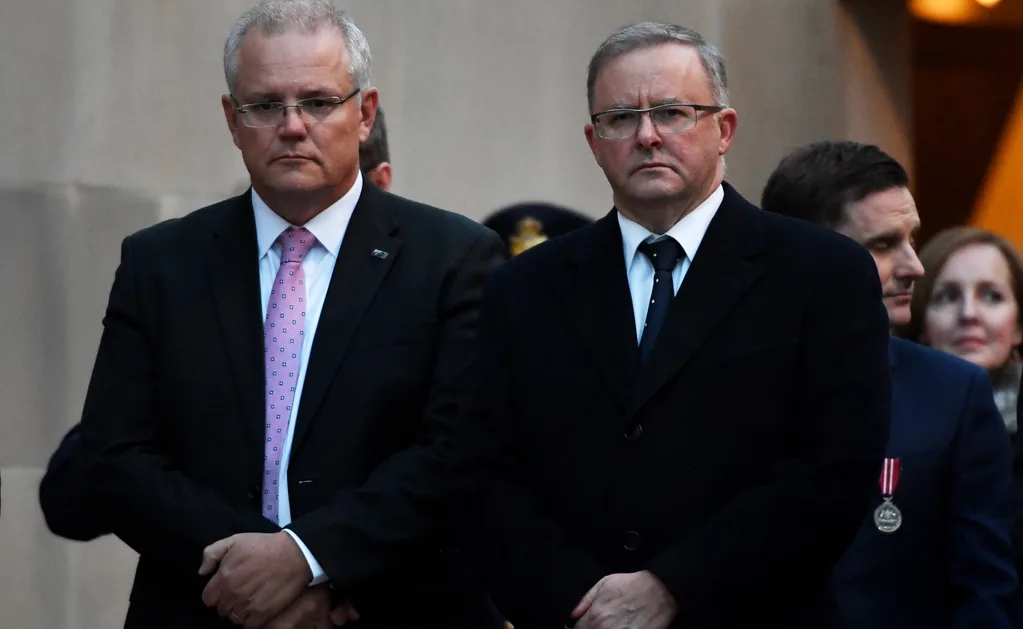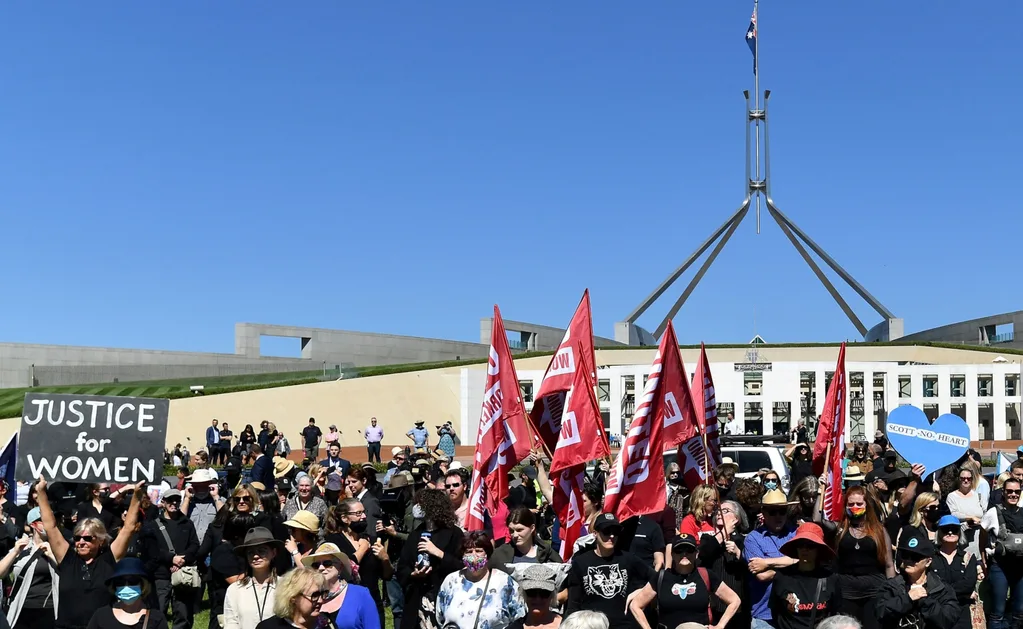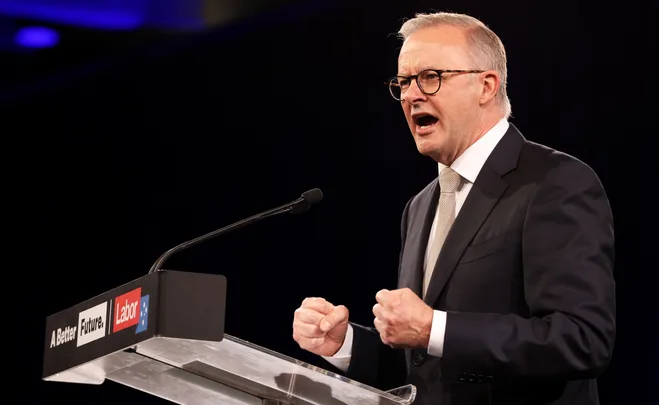It’s a huge day for Australia: Anthony Albanese is set to become our 31st Prime Minister as Scott Morrison officially concedes.
Millions of Australians turned out on Saturday to vote in the historic election, the first in 15 years to come after a Prime Minister has served a full term—the last PM to do so was John Howard.
READ MORE OF OUR ELECTION COVERAGE:
- A Breakdown Of The Labor And Liberal Policies On Climate Change
- Everything Scott Morrison & Anthony Albanese Have Said About Women
- A Breakdown On Where The Labor & Liberal Party Stand On The Cost Of Living & Housing
- Life Before Leading The Opposition: Anthony Albanese’s Rise To The Top
- Everything You Need To Know About Scott Morrison’s Family & Career

This year’s federal election was one of the most contentious Australia has seen yet.
Morrison and the coalition government came under fire multiple times in recent years—the PM’s response to the devastating bushfires of 2019 and 2020, a time where the country was more in need of strong leadership than ever, was to travel to Hawaii with his family.
In 2022, devastating floods destroyed the livelihoods of thousands of people in northern New South Wales and Queensland. Again, Morrison’s presence and leadership lacked—a feat he was called out for particularly by those affected.
It’s almost ironic that these devastating climate events go hand in hand with the fact that Australia continues to be one of the largest contributors to climate change in the world—the country came dead last in international rankings for climate policy at the latest COP26 summit.
This election was labelled as the fork in the road when it comes to global warming action.
In terms of what we can expect under a Labor Government, its key objective in its climate policy is to reduce carbon emissions to 43 per cent below 2005 levels by 2030. This is significantly higher than the Morrison Government’s 26 to 28 per cent commitment.
When it comes to the cost of living and Medicare assistance, Albanese has committed to a spend of at least $135 million on at least 50 Medicare Urgent Care Clinics in a bid to take pressure of emergency departments across the country.
The Albanese government has also pledged $79 million which would go towards justice reinvestment for First Nations communities—this is aimed at providing early intervention support, in turn reducing family violence, as well as decreasing incarceration rates.
Albanese has also put focus on childcare, pledging $11 million in funding for free playgroups in rural and regional areas.

The Labor party have also put a major focus on achieving gender equality for women, with plans to impose “positive duty” on employers, which is aimed at ending sex discrimination and sexual harassment, as well as making equal pay an objective in the Fair Work Act.
The Labor party has also committed to 500 new community sector workers, 50 per cent of whom would be stationed in rural and regional communities.
The Labor government has also long been calling for 10 days paid annual leave for every employee who has experienced domestic violence. On May 16, the Fair Work Commission passed down a decision which would see some six million Australians under awards entitled to this. The Labor party would like to see everyone entitled to this.
Under an Albanese Government, Australia has also been promised a $100 million boost towards crisis accommodation, as well as a $1.6 billion boost towards building 4000 social housing properties for women and children who escape domestic and family violence situations at home.










